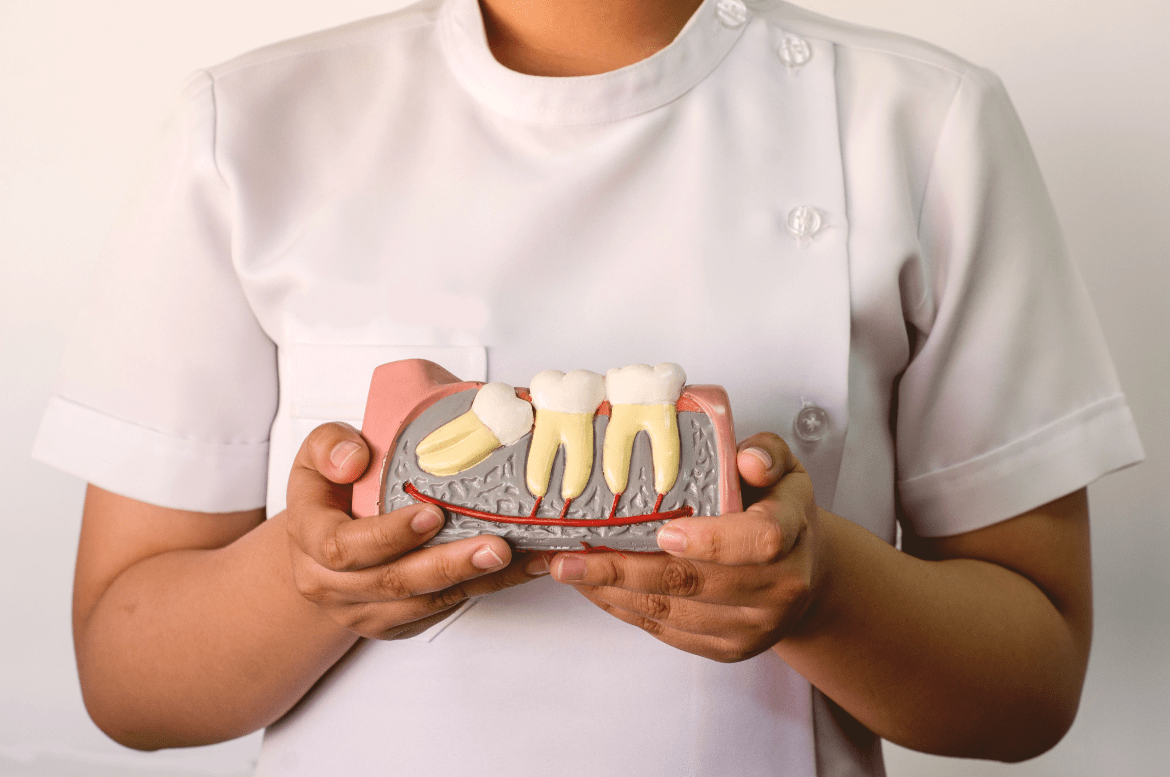Over your lifetime, your mouth will go through many changes. One of these changes and a major dental milestone is the appearance of your wisdom teeth. Whilst this usually takes place between the ages of 17 and 25, it can happen early or later… or not at all!
At Beaches Dental Mona Vale, we have a lot of experience in dealing with wisdom teeth and their removal. In this article, we try to help you understand more about these last appearing adult molars.
What Are Wisdom Teeth?
Unfortunately, wisdom teeth don’t make you smarter. They get their name from the mature age at which they usually choose to appear. Wisdom teeth, also known as third molars are found at the very back of your mouth. They appear on the top and bottom of both sides of your mouth.
Whilst most people will experience the appearance of their wisdom teeth, some people won’t. If you’re over the age of 25 and are yet to see your wisdom teeth – don’t panic! Some people don’t have any wisdom teeth at all and many people have a few but not all four. We aren’t entirely sure why we have wisdom teeth. But one idea is that they may be leftover from when our ancestors ate more hard vegetables and leafy greens.
Just because you can’t see your wisdom teeth, doesn’t mean they’re not there. Occasionally they will stay under the gum line without ever erupting. In these cases, an X-ray can determine their presence.
Why They Can Cause Problems
Whether your wisdom teeth are visible or not, they can become problematic for your oral health. Most problems that wisdom teeth cause are because they don’t fit. Our jaws (and humans in general) have become smaller with time and our diets have changed a lot. Consequently, so have our dental needs.
Considering a lot of wisdom teeth erupt after a person is finished growing, the eruption process doesn’t always go to plan. When there is insufficient room in your mouth for your wisdom teeth, they become what is known as ‘impacted’. This can result in your wisdom teeth not coming all the way through or coming through on an angle. They can even end up growing sideways. It is often this impaction that can lead to the wisdom tooth causing:
- pain and discomfort
- increased risk of tooth decay
- infections or cysts around the impacted teeth
Regular dental check-ups allow your dentist to monitor your oral health and any changes in your mouth. They can monitor the eruption of your wisdom teeth and recommend their removal, if necessary, in an aim to avoid potential dental issues down the track.
Assessing Your Wisdom Teeth
As your wisdom teeth erupt or attempt to erupt through your gums, they will need assessment by an experienced dentist to ensure they don’t become problematic for you. An assessment of your wisdom teeth should include checking the following things:
Visible or Partially Visible Wisdom Teeth
Have they fully erupted or are they only partially visible and impacted? Do they trap food, increasing the risk of tooth decay or infections under your gum? Do they allow for effective brushing and flossing to take care of the neighbouring molars?
Wisdom Teeth Under the Gum Line
Are they competing with the neighbouring teeth for space? Are there any signs of inflammation, infection or a cyst surrounding the area of the impacted tooth?
Not all wisdom teeth need to be removed but many do. So, we recommend that an assessment for wisdom teeth takes place in one’s late teenage years. This is because often young adults can heal quicker than older adults and it can help prevent unnecessary wisdom teeth related issues later.
What to Expect When Getting Them Removed
We understand that the idea of having your wisdom teeth removed may be daunting. That is why there are options for additional sedation when having your wisdom teeth removed. Depending on the number of wisdom teeth to be removed and the complexity of the surgery they may be removed under happy gas (nitrous oxide), IV sedation or general anaesthetic (usually as a day surgery patient in hospital).
Before Removal
Before removing any wisdom teeth a thorough treatment plan and discussion about the pros, cons and possible complications of their removal as well as additional sedation options available is essential.
Prior to your dentist commencing any part of the treatment, the area will be numbed with a local anaesthetic.
During Removal
The exact process for the removal of a wisdom tooth depends on the specific case at hand. Often with wisdom teeth removal, an incision in the gum may need to be made to allow access to the tooth. The tooth may also need to be cut into smaller pieces to allow for it to be removed more easily. Whilst you may feel pressure, you shouldn’t feel any pain during the extraction.
At Beaches Dental Mona Vale, we try to keep you updated every step of the way.
After Removal
You may also need a few dissolving stitches to help your gum heal, especially if an incision was made. Your dentist will place gauze over the extraction site and ask you to bite down on it for up to an hour to help stop any bleeding.
A course of antibiotics may be prescribed in some cases, post-extraction. And it’s important to avoid the following activities within the first 24 hours after having your wisdom teeth/tooth removed:
- Rinsing your mouth
- Consuming alcohol or tobacco products
- Drinking hot liquids (soups, teas, etc)
- Vigorous physical activity
Wisdom Teeth Removal Northern Beaches
Is wisdom tooth pain getting you down?
Our experienced dental team at Beaches Dental Mona Vale is here to help you. We make use of modern dental technologies and techniques to provide our patients with the most comfortable dental care possible.
Our onsite full mouth OPG and 3D X-ray machines allow us to accurately assess your wisdom teeth for treatment. We take the time to get to know you, listen to your concerns and fully explain your treatment options.
Should your wisdom teeth need to be removed, we can take care of you in one of our treatment rooms or refer you to an oral surgeon for treatment in hospital.
Don’t suffer in pain. Contact our friendly team today to book a wisdom teeth assessment with one of our dentists.

